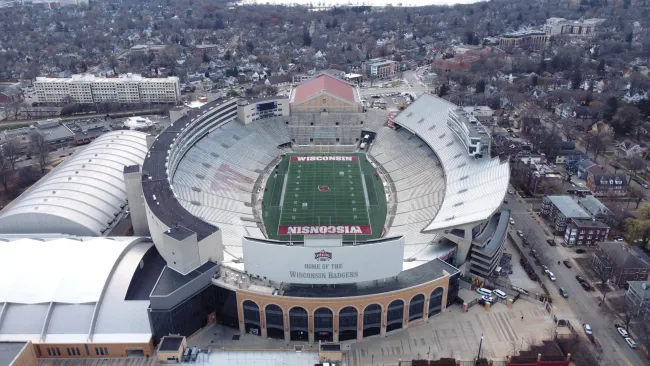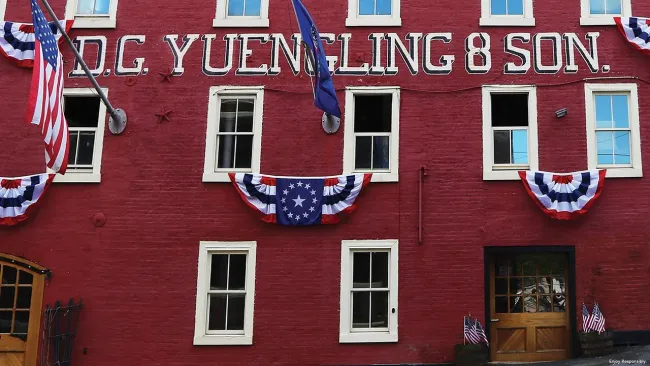Camp Randall Stadium, the historic home of the Wisconsin Badgers, is set to resume alcohol sales for the 2024 football season. This change marks a significant shift for the University of Wisconsin-Madison, which banned alcohol sales following the 1993 "Camp Randall Crush." The decision to reintroduce alcohol aligns UW-Madison with 15 other Big Ten schools that already sell alcohol at their football stadiums. Let’s explore this policy change, the history behind the initial ban, the current climate in collegiate sports, and the reactions from the community.
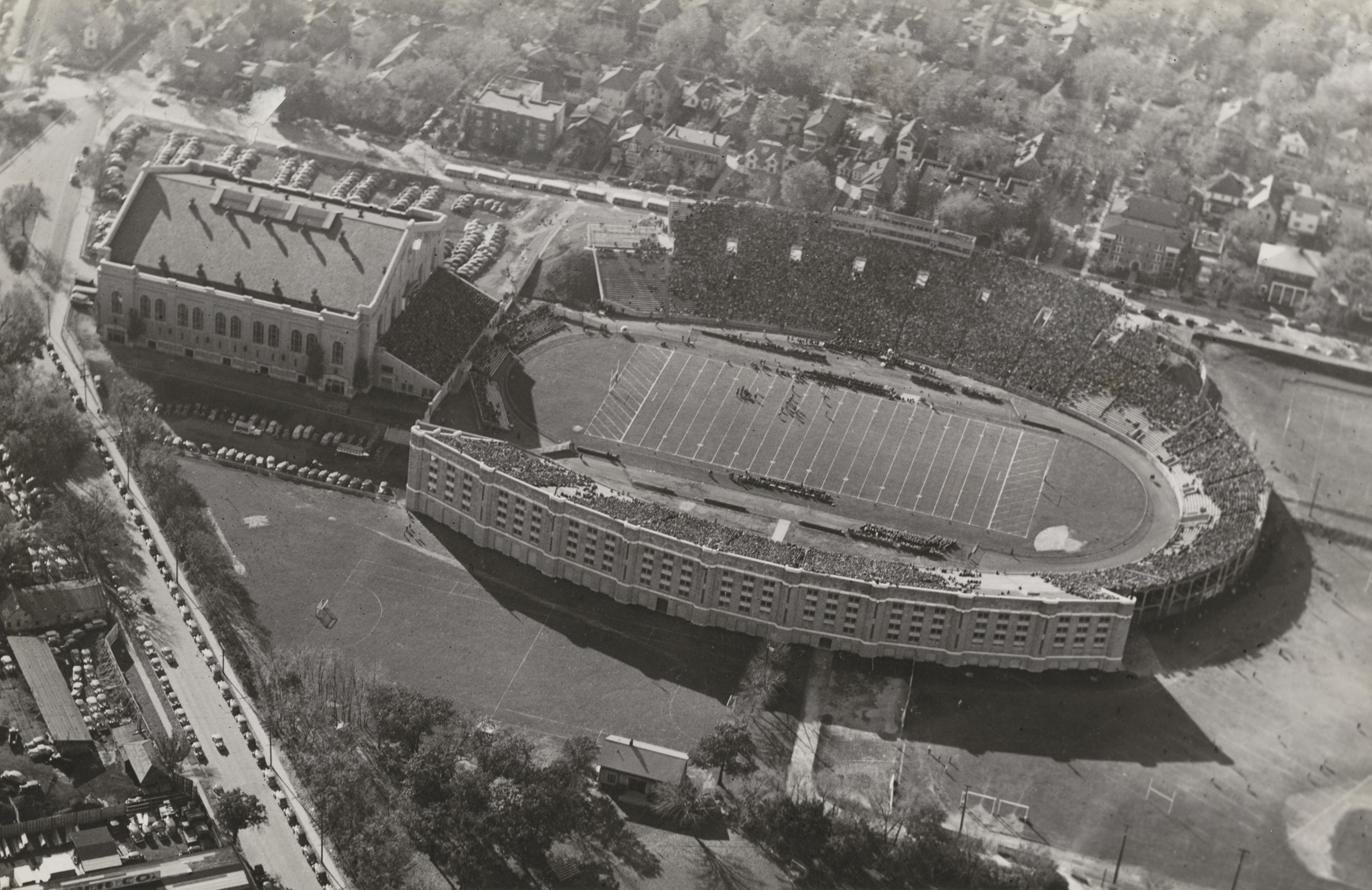
An aerial view of Camp Randall stadium and the Field House during the November 1964 game. This was the last game played before the upper deck was added and with the old original press box. Wisconsin won over Minnesota 14-7. Downloaded from UW-Madison Libraries, August 29, 2024.
The 1993 "Camp Randall Crush" and the Ban on Alcohol
To understand the decision to resume alcohol sales, it’s essential to look back at the events of October 30, 1993. On that day, after a narrow victory over the Michigan Wolverines, enthusiastic Badgers fans attempted to storm the field, resulting in a stampede that injured around 70 people. The chaotic rush was exacerbated by outdated stadium design, which led to overcrowding and bottlenecks. The incident, known as the "Camp Randall Crush," prompted the university to reevaluate its stadium policies and prioritize safety, leading to the ban on alcohol sales.
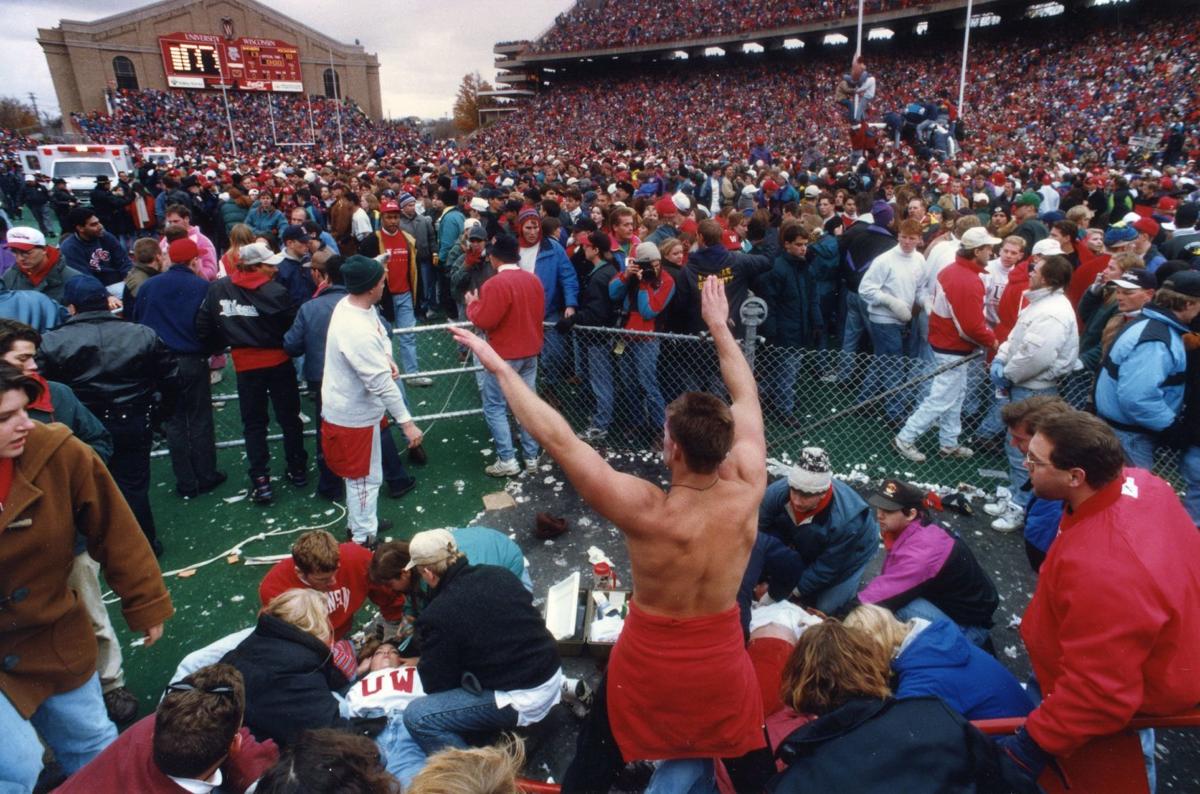
While the "Camp Randall Crush" wasn’t directly caused by alcohol, it highlighted the need for better crowd control and safer stadium environments. In the years following, the university implemented several safety measures, including stadium renovations, to prevent similar incidents. The alcohol ban became part of a broader effort to create a more controlled and family-friendly atmosphere at sporting events.
Changes in Collegiate Sports and the Decision to Resume Alcohol Sales
The decision to reintroduce alcohol sales in 2024 reflects a broader trend in collegiate sports. Across the United States, many universities have relaxed restrictions on alcohol sales, recognizing both the potential for increased revenue and the demand from fans. As of 2024, 55 of the 69 schools in major college football now sell alcohol at stadiums on game days, according to an AP survey. This shift is partly driven by the desire to enhance the fan experience and provide amenities that are already common in professional sports venues.
At UW-Madison, the decision was made after careful consideration and analysis of alcohol sales at other campus venues. Alcohol has been sold at the Kohl Center, home to the Wisconsin Badgers' basketball and hockey teams, as well as at the LaBahn Arena. Director of Athletics Chris McIntosh noted the success of these sales: "We were pleased with how well alcohol sales went during the basketball and hockey seasons at the Kohl Center and LaBahn Arena last season, and we expect much of the same at Camp Randall this fall" (Spectrum News, 2024).
The university also looked to peer institutions within the Big Ten Conference, many of which have reported positive outcomes from alcohol sales. Schools like Ohio State, Michigan, and Penn State have successfully integrated alcohol sales into their stadiums, balancing the fan experience with safety and security measures.
New Alcohol Policy and Implementation at Camp Randall
The new alcohol policy at Camp Randall Stadium will be implemented starting with the home opener on August 30, 2024. The stadium will offer beer, wine, and pre-packaged alcoholic beverages such as hard seltzers at various concession stands throughout the venue, including the UW Field House.
Chancellor Jennifer L. Mnookin emphasized that the decision to resume alcohol sales was made with public safety in mind. "The option to purchase alcohol is common at collegiate athletic venues all over the country, and we’re glad that we can now offer it as part of the fan experience at Camp Randall," she said. "I appreciate the work our athletic and administrative teams have done to put together a plan that balances this opportunity with public safety" (UW News, 2024).
To ensure a safe and enjoyable environment, several policies will be in place. Fans will be limited to purchasing two drinks at a time, and anyone appearing under the age of 40 will be required to show identification, which will be verified by electronic scanners. Additionally, there will be an increased presence of the University of Wisconsin Police Department, and a text line will be available for fans to report any issues.
The university also plans to use a portion of the revenue from alcohol sales to support student wellness initiatives, including alcohol-free programming and resources for students facing challenges related to high-risk behaviors. This approach reflects a commitment to promoting responsible behavior while enhancing the fan experience.
Financial Implications and Expected Revenue Impact
The decision to resume alcohol sales is also expected to have significant financial benefits for the university. In collegiate sports, alcohol sales have become an increasingly important source of revenue, helping to fund athletic programs, scholarships, and facility upgrades. For many universities, the revenue generated from alcohol sales can run into the millions of dollars annually.
At UW-Madison, the additional income from alcohol sales is anticipated to provide substantial support for the athletics department and other campus initiatives. By tapping into this revenue stream, the university aims to bolster its financial position while also investing in student services and programs that promote a healthy campus environment.
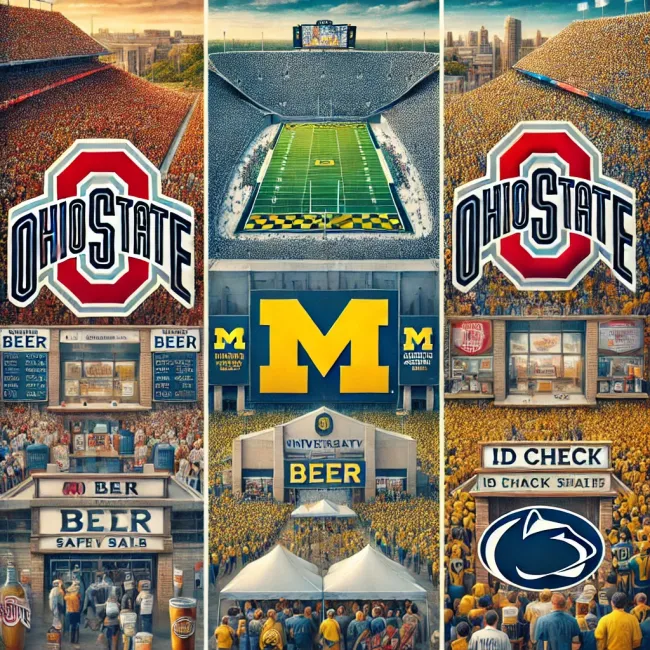
Collage of major Big Ten football stadiums: Ohio State University, the University of Michigan, and Penn State University. These schools have successfully implemented alcohol sales during games with comprehensive safety measures such as ID checks and limited drink transactions, enhancing the fan experience while maintaining safety (Image generated by Open-AI, August 29, 2024).
Comparisons with Other Universities
Comparing UW-Madison’s approach with other universities reveals a common set of strategies aimed at ensuring safety while providing alcohol. For example, Ohio State University, one of the first Big Ten schools to introduce alcohol sales at football games, has reported positive experiences with limited incidents of alcohol-related disruptions. Their policies, which include ID checks, limited drink sales per transaction, and designated alcohol-free areas, have become a model for other schools.
Similarly, the University of Michigan and Penn State have implemented comprehensive safety measures to accompany their alcohol sales, such as increased security presence and strict enforcement of alcohol-related regulations. These schools have found that with the right precautions, alcohol sales can enhance the game-day experience without significantly increasing safety risks.
Community Reactions
The decision to resume alcohol sales has been met with mixed reactions. Some fans are excited about the change, viewing it as a way to enhance the game-day experience. Supporters argue that if other schools can successfully manage alcohol sales, UW-Madison can do the same with the right policies in place.
"I think it’s about time," said one long-time Badgers fan. "We’re adults, and we should be able to enjoy a beer while watching the game. As long as there are rules in place, I don’t see any problems."
However, there are concerns about potential negative impacts, such as increased rowdiness and alcohol-related incidents. Critics worry that the decision might prioritize revenue over safety, pointing to the university’s history with the "Camp Randall Crush" as a reminder of the risks associated with large, passionate crowds and alcohol consumption. A parent of a current student voiced their concern, stating, "I remember the chaos of the '93 crush, and I hope the university is prepared to handle any issues that arise. Safety should always come first."
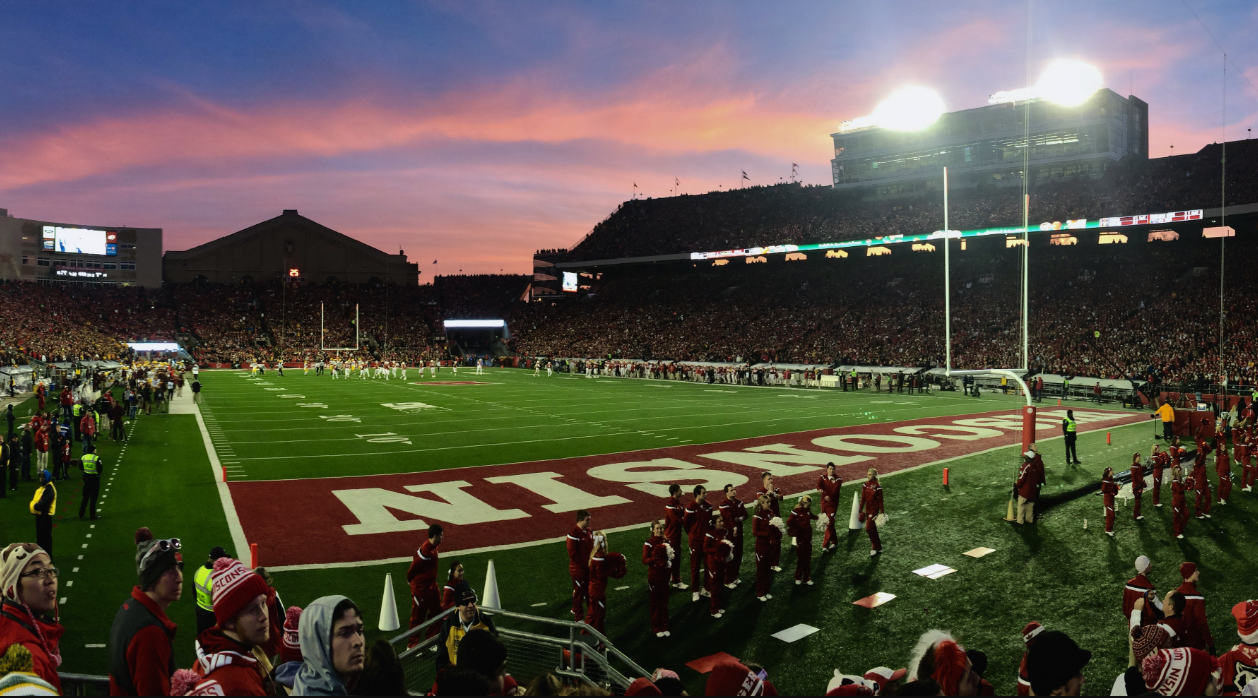
Looking Forward
As the new season approaches, all eyes will be on Camp Randall to see how this policy change unfolds. The university’s commitment to promoting student wellness and encouraging responsible behavior around alcohol use will be critical in ensuring that the reintroduction of alcohol sales enhances the fan experience without compromising safety.
The 2024 season will serve as a test case for UW-Madison, providing valuable insights into how the policy change impacts both the atmosphere at games and the financial health of the athletics department. If successful, it could pave the way for further enhancements and offerings at Camp Randall Stadium and other campus venues.
Conclusion
The return of alcohol sales at Camp Randall Stadium marks a new era for UW-Madison, blending tradition with modern expectations for collegiate sports. By drawing on lessons from the past and adopting best practices from peer institutions, the university aims to create a vibrant and safe environment for all fans.
As this policy takes effect, it will be crucial for all stakeholders—students, fans, university officials, and law enforcement—to work together to ensure that the reintroduction of alcohol is a positive addition to the game-day experience at Camp Randall.
Article Sources
UW News. (2024). Camp Randall Stadium to begin alcohol sales at the start of the 2024 season. Retrieved from news.wisc.edu
Spectrum News. (2024). Camp Randall to begin selling alcohol at football games. Retrieved from spectrumnews1.com
The Bozho. (2018). The Camp Randall Stadium stampede, 25 years later. Retrieved from thebozho.com
Working With Crowds. (2024). The Camp Randall Crush 1993. Retrieved from workingwithcrowds.com


